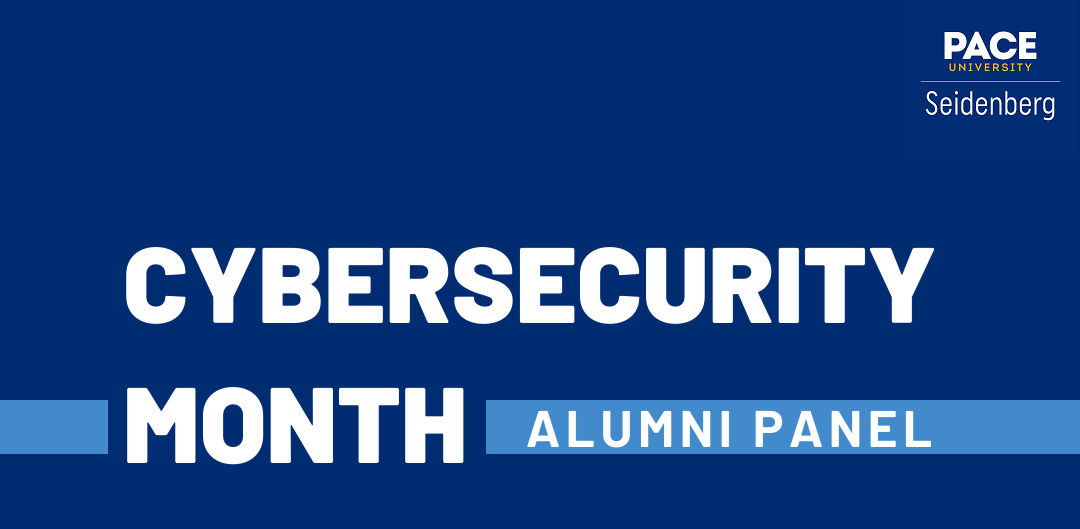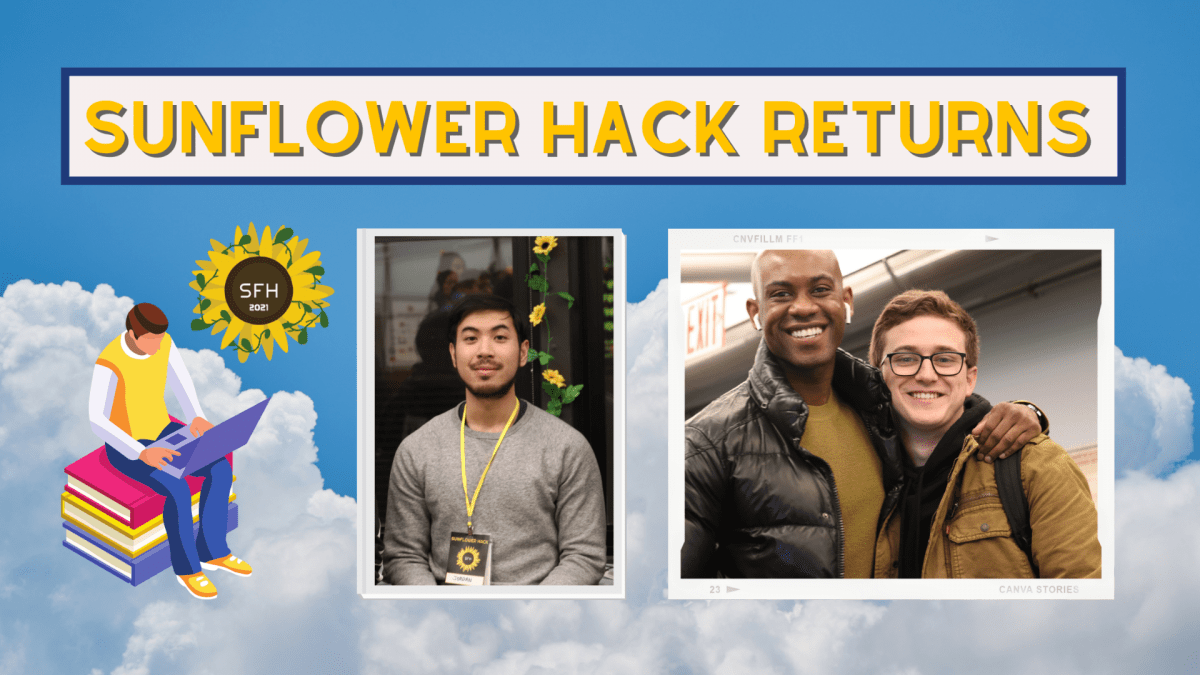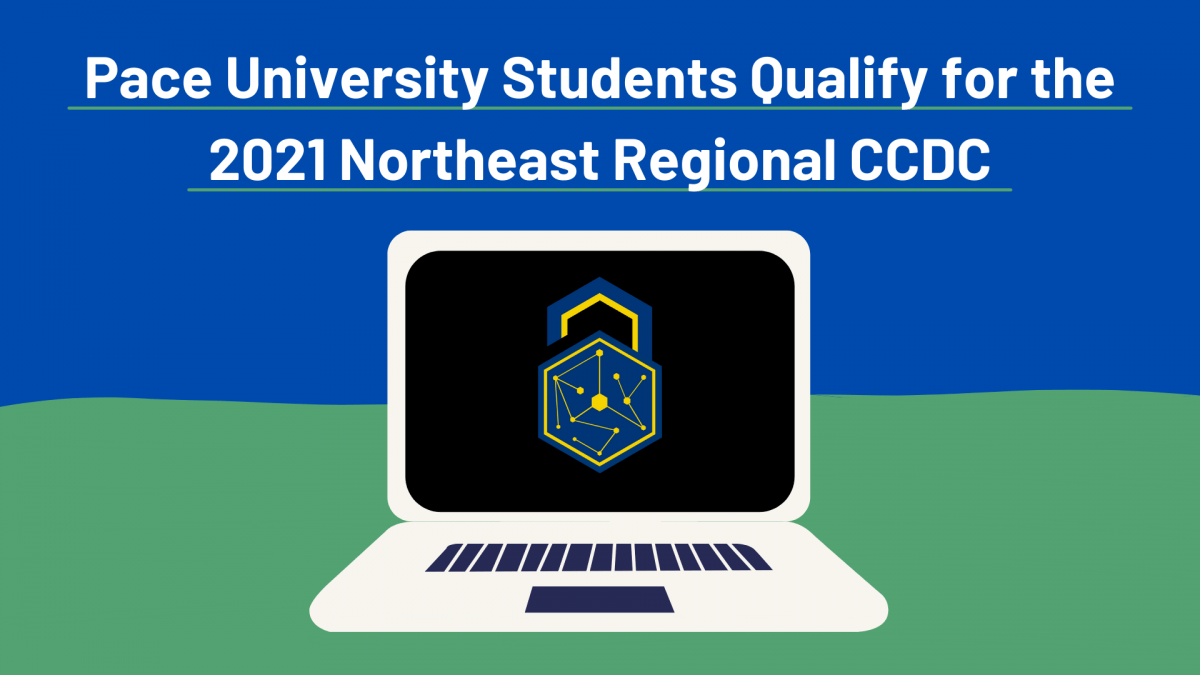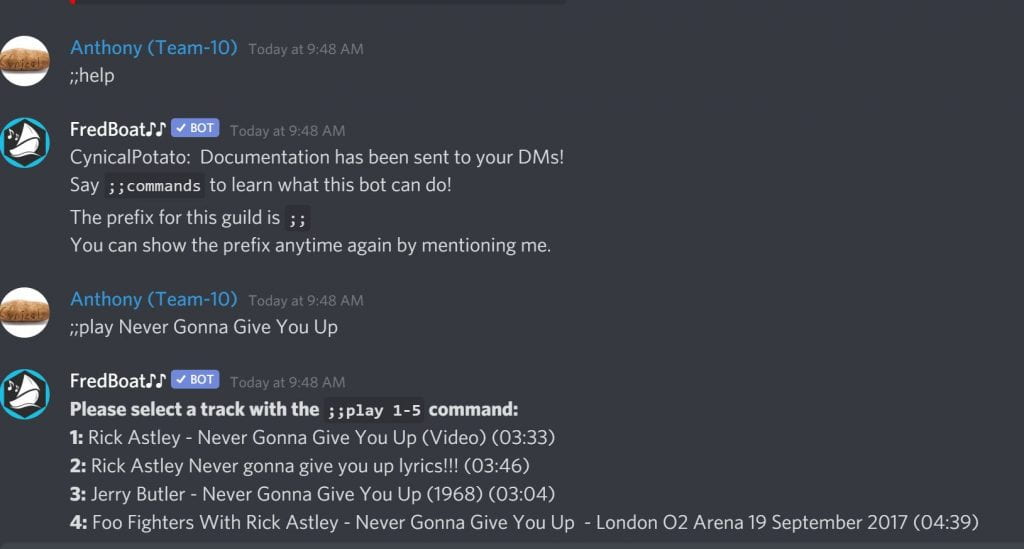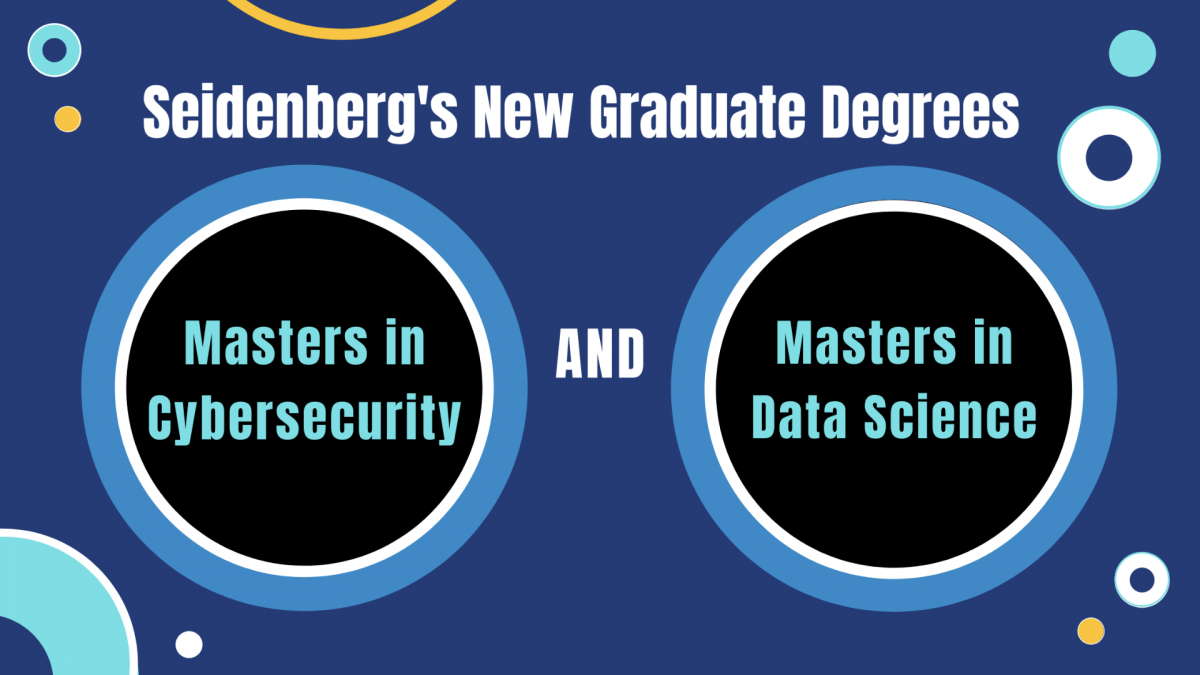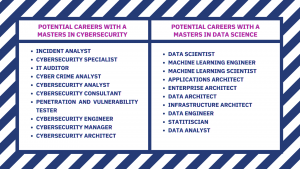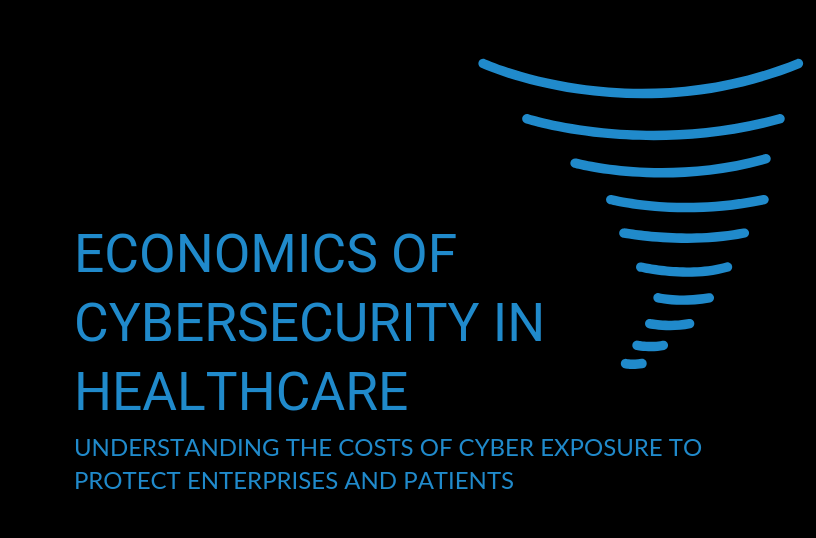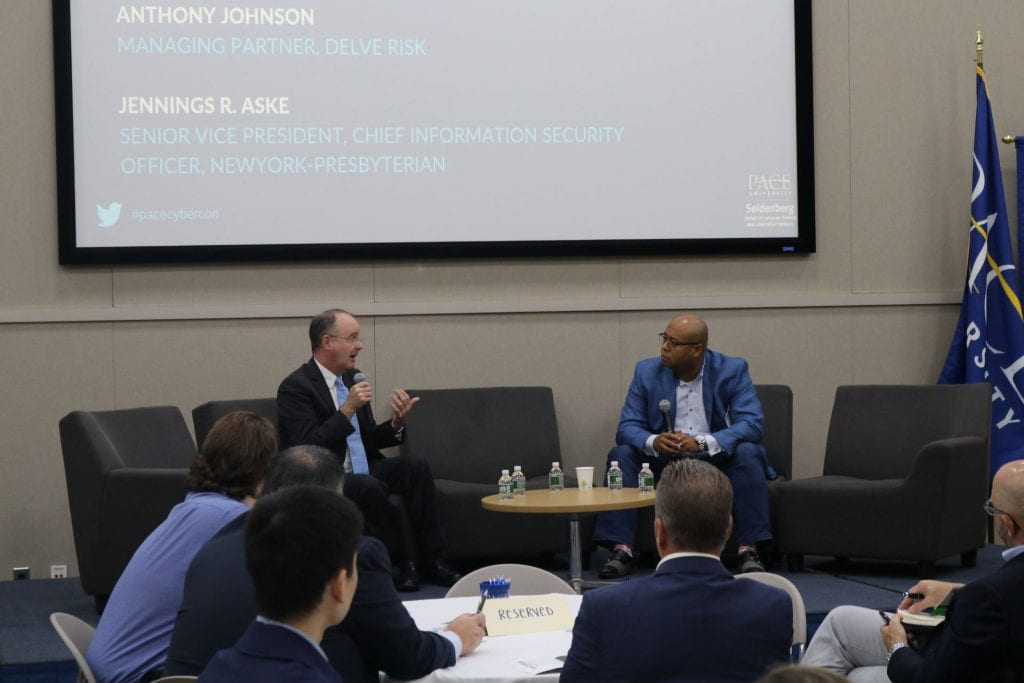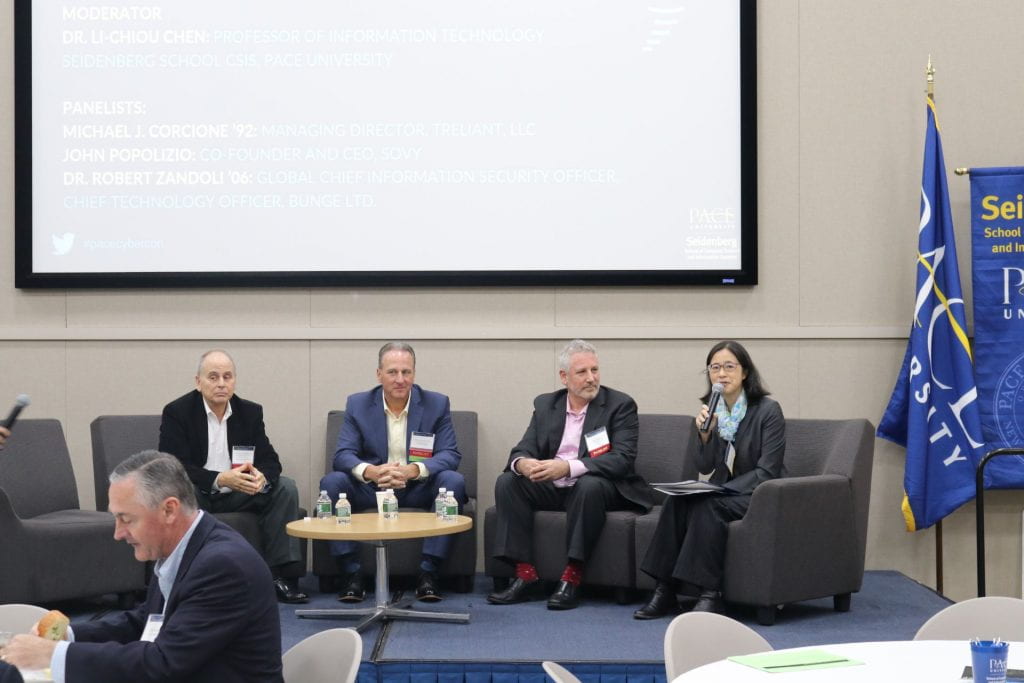On Tuesday, October 19, 2021, the Seidenberg School of Computer Science and Information Systems at Pace University hosted an alumni panel dedicated to the topic of the month, cybersecurity.
Facilitated by faculty members Li-Chiou Chen and Darren Hayes, the panel comprised of four alumni who came together over Zoom to share their wisdom and expertise with current students.
Alumni panelists included:
-
- Michael D’Angelo, Director of Forensics Operations practice at Driven
- Pierre Jeppsson, Senior Associate at Ankura Consulting Group
- Daniel Walker, Senior Intelligence Analyst, Homicide Bureau, Bronx District Attorney’s Office
- Jasmine Washington, Computer Scientist, Defense Information Systems Agency (DISA)
Over the course of the hour long conversation, panelists discussed their current positions, how they got there, and what about their experience at Seidenberg helped prepare them for a career in cybersecurity.
The panel was recorded and will be released soon (we’ll update this post when it is). In the meantime, here are some quick answers to pressing questions Seidenberg faculty posed:
What’s the most significant cyber security problem right now in industry or in government?
Jasmine: Supply chain risk – being aware of what third parties you’re connected to and how they are secured . . . another trend is ransomware attacks. We see that really relevant relevant now that we’re doing telework and we’re working from home and we’re doing this education at home
Daniel: Phishing emails, because I know that is still prevalent today. I know a lot of you probably think, Oh, maybe it was done, five years ago, but no today it’s still happening. People are still clicking on links.
As a hiring manager, what do you look for in a candidate?
Michael: I want to find analysts or investigators that . . . maybe don’t know the full breadth of what’s out there and they want to get their feet wet. Even more, they want to be exposed – they want to delve into new topics and continue to learn . . . the ability to go outside of your comfort zone.
What advice do you have for interviewing?
Pierre: For me, It was just the conversations I was having. So, I did like three or four interviews . . . but I didn’t let them interrogate me. They asked me about my life, and I just told my story . . . there wasn’t enough time for them to go “so tell me about some-” you know . . . they hit you with those kind of gotcha interview questions. I was enthusiastic and I really thought a lot about what I would say. I even did some background work, like I went on the Anchor website and I looked at their mission statement and I looked at their their history and what their employees do in the matters that they’ve been involved in and it . . . painted a picture for who I might be talking to and once I knew who I was talking to I could just be myself. You tell them about yourself and and they go “Okay, this is a person I could see working here, somebody I would want to work with.”
The recording of the event will be available soon – we’ll share on Seidenberg social media as soon as it’s up!
Follow us on social media for updates!


